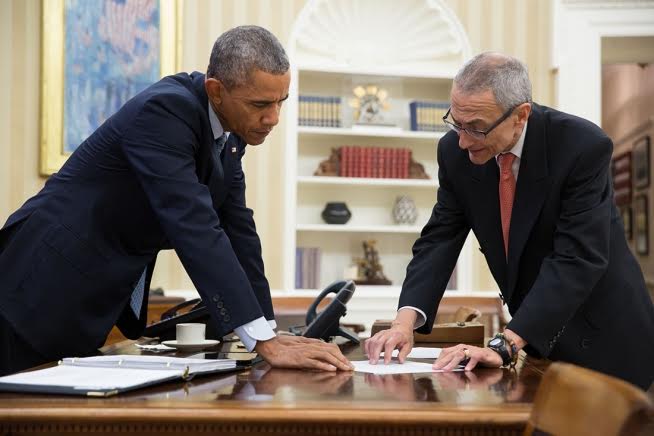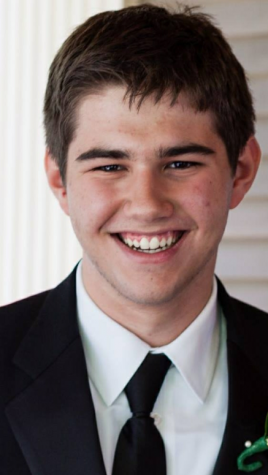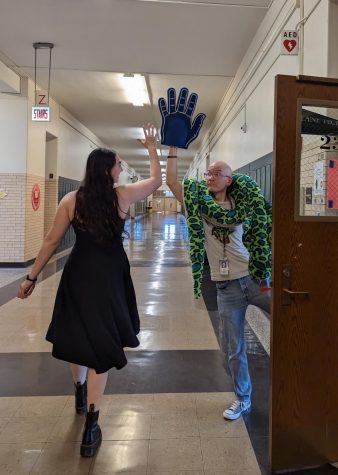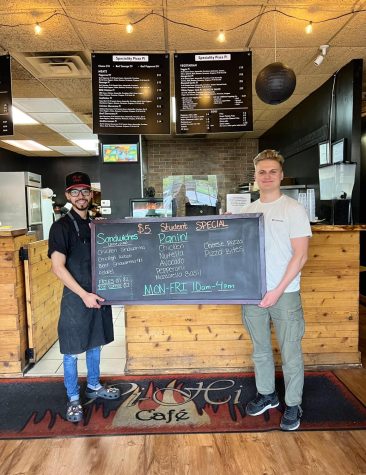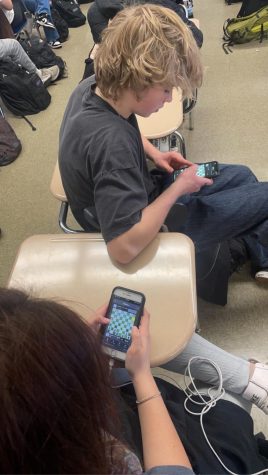From 2501 West Addison to 1600 Pennsylvania Avenue
Lane alumnus seeks to put Hillary Clinton back in the White House
Photo Courtesy of John Podesta
John Podesta (‘67), who is currently Chairman of Hillary Clinton’s presidential campaign, has also served as Advisor to President Obama and Chief of Staff for Bill Clinton.
February 12, 2016
With the election season in full swing, campaigns are scrambling to get every last vote they can, and one former Lane student knows this more than anyone else. The man behind Democratic candidate Hillary Clinton’s campaign sat in the halls at Western and Addison just half a century ago.
John Podesta (‘67) is one of the most important people in all of American Politics. From being Bill Clinton’s Chief-of-Staff, to being an advisor to President Obama, Podesta’s name is known throughout DC, but his roots lie in the Mayfield Park neighborhood of Chicago.
Podesta chose to go to Lane for many of the same reasons current students do.
“Living on the North Side, it was the prefered choice,” he said. “It was the best school on the North Side of the city.’
Podesta had a typical Lane experience. He played varsity football, was an editor of the yearbook, and worked nightly at Bankers Life and Casualty, preparing punch cards to run through computers.
Podesta took advantage of Lane’s academics, taking advanced science classes and working in the shop classes.
“I still can do electric work and once in awhile, fix some things,” he said.
Podesta’s entrance to the political scene came right after his graduation from Lane. His first campaign was for Minnesota Senator Eugene McCarthy. After that, he worked in a Connecticut Senate campaign for Democrat Joe Duffey, where he met a man named William Clinton. This was the start of an over 40 year relationship.
After working for Duffey, he went to Georgetown Law, and became a trial lawyer. Soon he went to work on Capitol Hill for Senator Pat Lahey.
“Back then he was a young member, and I was a very young staffer,” he said. “Now he’s a very senior member and the longest serving member of the Senate.”
He reunited with Bill Clinton for the 1992 election and started working in the White House the first day Clinton was inaugurated. He worked in a variety of positions, working his way up to Chief of Staff.
“Being the Chief of Staff of the White House, you get every problem that rolls down the hill,” he said.
After he left Clinton’s White House, he started teaching at Georgetown, which he still does today, and in 2003, founded a think tank called the “Center for American Progress (CAP).” CAP researches American Policy, encourages new laws to be passed and to have the media cover the issues that “matter.”
Right after the 2008 election, Podesta ran Obama’s transition into office. Starting in 2014, he became a Counselor to the President, mainly advising him on climate change and energy transformation.
Podesta’s work has always been something extremely personal to him: “My goal in politics has always been to improve the lives of the kind of people who I grew up with,” he said. “I’ve been able to do that by working for two individuals who both have front and center in their minds trying to make people’s lives better, and that’s what drew me to Hillary’s campaign.”
Podesta is now Hillary Clinton’s Campaign Chairman. His responsibilities include providing wisdom to the staff, traveling around the country trying to raise money for the campaign and advising Secretary Clinton on policy.
“I raise the average age in the Headquarters about ten years,” he said. “I serve as a surrogate, doing television appearances and going to campaign fundraisers.”
Although Podesta is the first to admit he’s not one to give advice, he has been extremely successful, and never plotted his career path.
“When something came along that seemed like it was worthwhile, even though it might be a little bit risky, it was worth trying to do,” he said. “I was open to saying yes.”

